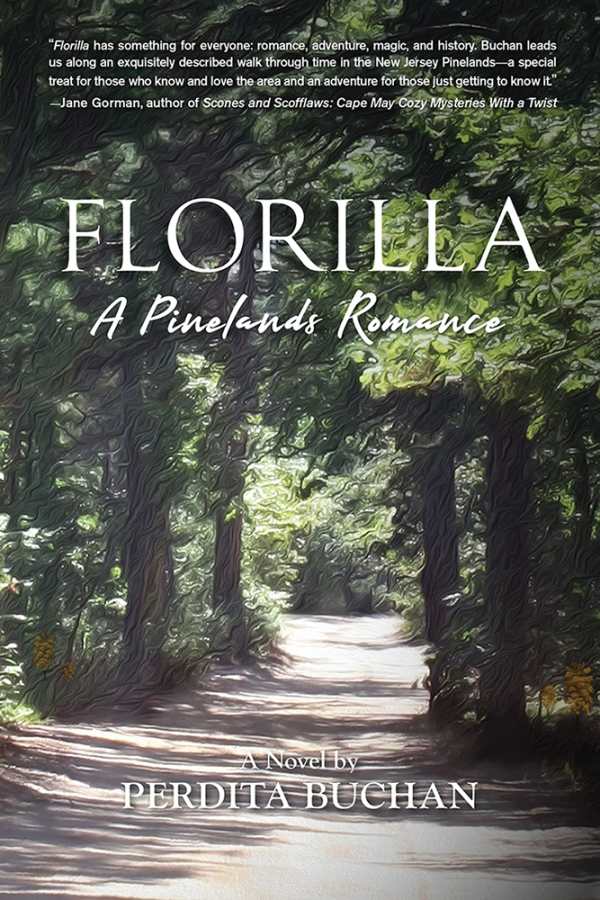Florilla
A Pinelands Romance
Florilla is a splendid, intelligent nineteenth-century romance that threads social ideas with botany and a memorable heroine.
Healing and psychic powers drive a young woman’s destiny in Perdita Buchan’s beautiful historical romance, Florilla.
In the mid-1800s, Florilla is a traveling magician’s daughter and the granddaughter of a witch. Upon her grandmother’s death, she’s ushered to Benderville to live with Benjamin, a cotton mill owner who sets her to work and teaches her classics. But her violent father, Jack, is determined to exploit her powers for his act.
Once Florilla turns eighteen, Benjamin’s concerns about her safety prompt him to devise a new plan, but, fearing the loss of her independence, she runs away. Florilla meets Colin, an English botanist, and joins him at Woodland Place, his aunt’s idyllic mansion and retreat for artists and social reformers, which is inspired, in part, by a real villa that once existed in the Pinelands. She helps Colin with his plant specimens. She also inspires an artist, and meets intriguing members of the Blue Stockings movement. But then Jack takes her hostage.
Utopian ideals, floral Latin names, references to the mythological Daphne, and teeming landscapes in the New Jersey Pinelands create an enchanting backdrop that hints at thriving wilderness and desires for personal freedoms. Yet amid the pleasures and kindness that Florilla sometimes encounters, outward dangers threaten the couple’s gentle romance. Their inward dilemmas, too, which surround Colin’s background commitments and Florilla’s disappointment about them, fuel uncertainty about whether they’ll be able to reunite.
Much of their relationship is composed of shared outings and implicit emotions; such restraint befits the behavioral norms of their times. Though Colin’s character is too much of an outline, the understated, poetic prose that unfolds in the book’s short sections throughout his search for Florilla is evocative.
Period details cover eccentric features like the pseudoscience of phrenology, and also fascinating conversations that link playful exuberance with earnest beliefs about human potential. A subtheme about improvements for the lives of mill girls, in particular, is an interesting foray into historical challenges. Throughout, the influential effect on Florilla of hearing about such diverse matters is depicted in gradual, satisfying stages. She’s invited, for instance, to make use of her ancient language skills at Woodland Place.
Distinct sections that cover Florilla’s early tutelage, her time with Colin, and performances with Jack on the road that take her to New England and beyond, all lead to subtle character growth. That her public success as a healer pricks at her conscience speaks to her caring nature, and how she subverts her father highlights her nerve. A late interlude involving a school for the feebleminded, however, pulls the focus away from the main plot. Still, Florilla’s situation with Colin resolves through a combination of determination and fortuitous vision, culminating in quiet joy.
Florilla is a splendid, intelligent nineteenth-century romance that threads social ideas with botany and a memorable heroine.
Reviewed by
Karen Rigby
Disclosure: This article is not an endorsement, but a review. The publisher of this book provided free copies of the book and paid a small fee to have their book reviewed by a professional reviewer. Foreword Reviews and Clarion Reviews make no guarantee that the publisher will receive a positive review. Foreword Magazine, Inc. is disclosing this in accordance with the Federal Trade Commission’s 16 CFR, Part 255.

